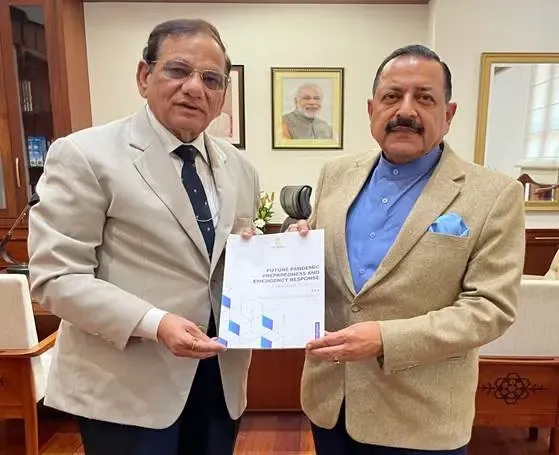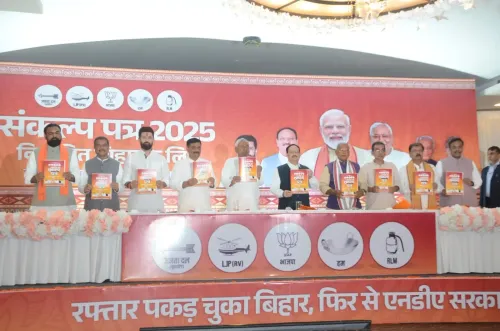India to Enhance R&D and Industrial Framework for Future Pandemic Preparedness: Jitendra Singh

Synopsis
Key Takeaways
- Strengthening R&D capabilities.
- Enhanced industrial infrastructure.
- Quick medical countermeasures deployment.
- Focus on diagnostics, vaccines, and therapeutics.
- Coordinated government approach.
New Delhi, March 10 (NationPress) In light of the persistent risk of zoonotic spillovers, Union Minister Dr. Jitendra Singh announced on Monday that India will bolster its research and development capabilities alongside its industrial framework to effectively tackle potential future pandemics.
The Minister of State (Independent Charge) for Science and Technology made these remarks while reviewing the NITI Aayog’s report on “future pandemic preparedness.” This report delineates action strategies to implement medical countermeasures within 100 days of any impending pandemic occurrence.
“India’s robust R&D capabilities and industrial infrastructure will be further enhanced to ensure readiness against any future pandemic,” Singh stated.
The Minister also elaborated on strategies to engage the research and development team and facilities, along with the industry, to proactively address potential pathogens and develop prototype vaccines through a coordinated, scientific approach across various departments and stakeholders.
“India’s inter-sectoral One Health Mission has already transformed the pandemic surveillance systems to preempt potential outbreaks,” he explained. The report, prepared by an Expert Group set up by NITI Aayog, offers recommendations for future pandemic preparedness, particularly focusing on the development of medical countermeasures, including diagnostics, vaccines, and therapeutics.
It articulates the action paths needed to deploy medical countermeasures within 100 days of a future outbreak. Achieving this will necessitate expanding manufacturing capabilities, establishing forward and backward linkages, streamlining regulatory frameworks, and showcasing capabilities.
India successfully administered over 220 crore doses of domestically developed vaccines to its populace during the recent Covid-19 pandemic, and also distributed vaccines to more than 100 countries.
“Indian vaccines have utilized nearly all platforms, including mRNA, DNA, Adeno-viral, and inactivated virus systems. Indian-manufactured drugs were exported globally, and nearly 250 made-in-India Covid diagnostic tests received approval. All of this underscores our formidable scientific and industrial prowess,” Singh remarked.
Singh credited these achievements to “a coordinated and collective effort across departments, embracing a whole-of-government approach.”









